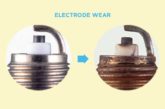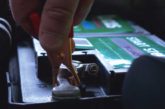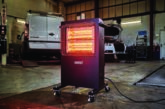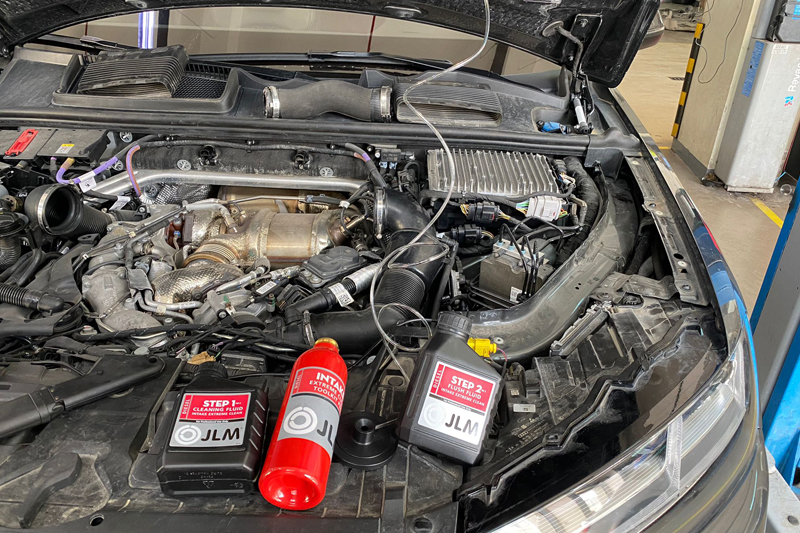
JLM Lubricants UK takes a look at the hard life turbos are sometimes subject to and proposes a liquid solution before any drastic measures are taken.
There’s no doubting the tenacity of the diesel turbo. With good maintenance, they can last up to 200,000 miles. However, add a dose of neglect into the mix and you’d be lucky to get half that number, before that turbo delivers its last gasp.
Premature turbo failure is not attributed to one act of poor maintenance, such as dirty or old engine oil, for example (although that’s high on the list of reasons for failure). Oil contamination and clogging, excessive exhaust heat, general wear and tear with bearings and seals, naturally degrading over time, can all be brought to bear on the demise of the turbo.
Worryingly, workshops are now reporting turbo failures due to cheap aftermarket parts being used – the motorist engaged in a spot of online buying to cut a few corners, adding up to a hefty bill when they eventually bring their trusty diesel into the workshop, for a proper fix. In some cases, a replacement turbo.
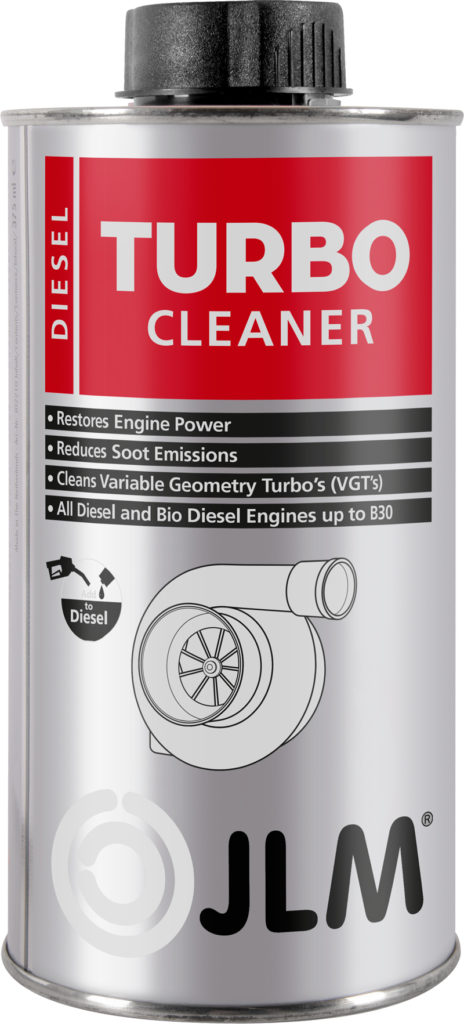
The symptoms of a turbo on its way out include excessive blue or black smoke from the exhaust, loss of power and a high-pitched noise, equivalent to whining. Sometimes oil has entered the intake or intercooler. But the owner can no longer ignore the fact there’s a real problem, which only the professional motor mechanic can fix.
“The question is, can liquid tools help maintain the turbo in a diesel engine and prolong its life?” asks Mike Schlup, head of JLM Lubricants UK. “The answer is undoubtedly, yes. In the last 12 months we’ve seen a significant rise in the number of workshops buying JLM Lubricants’ products for this purpose and placing repeat orders. Preventative maintenance with a good quality injector cleaner will help reduce the contaminant load on the turbo. But if problems begin to become evident then the Diesel Turbo Cleaner, or Diesel Extreme Clean fuel additives will directly target contaminated turbos helping to remove embedded soot from the vanes. These multifunctional liquid tools also benefit the fuel and exhaust system, including the DPF, to further improve performance and reduce contamination throughout the vehicle. Another top seller is JLM’s Engine Oil Flush. This cleans aged and dirty engines oil systems removing sludge and soot-based deposits. In the long return this also benefits the turbo helping to extend the life of the part and cut costs for the motorist. Finally, the JLM Turbo Pre Lube with its fully synthetic MoS2 formula, provides superior lubrication for new and refurbished turbos by preventing oil starvation in the crucial seconds of operation immediately following installation. You wouldn’t run an engine without first adding oil and the same applies to the turbo.”
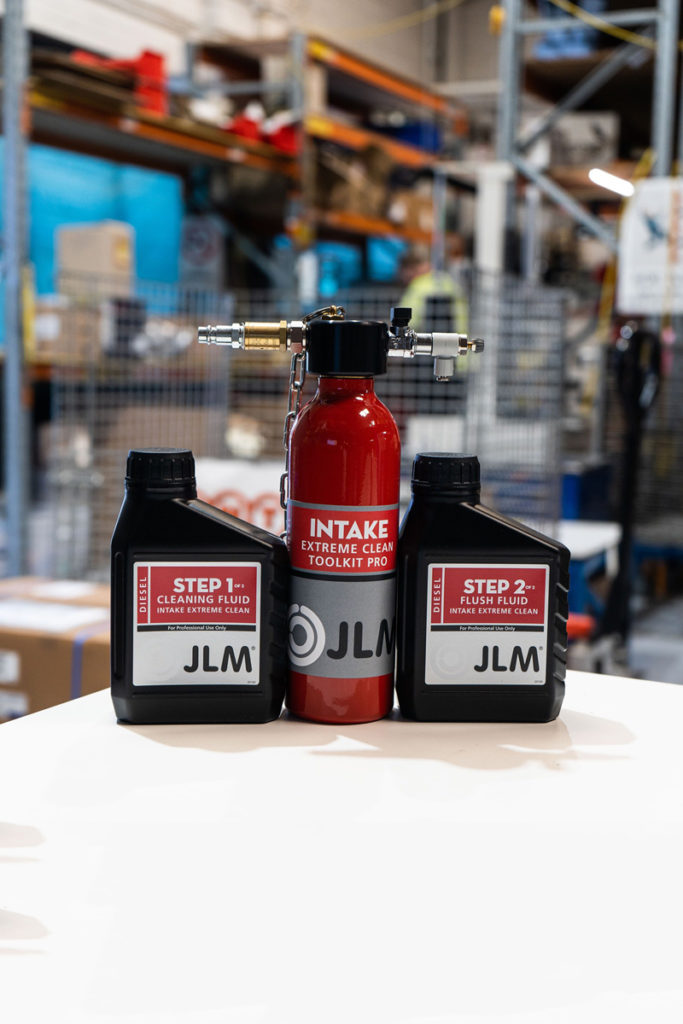
JLM Diesel Intake Extreme Clean Toolkit Pro with the two step fluids.
This pro only kit is the solution for a dirty engine that can no longer breathe freely. It cleans the air intake, combustion chamber, intake valves, gas valve, injectors and variable turbo vanes of a dirty diesel engine via the air intake. It’s much more powerful than an additive in the fuel tank and the simple delivery system means a professional mechanic can offer a cost effective but powerful engine cleaning service to their customers which in turn adds additional value to their business.
15 months ago, JLM launched their Liquid Tools campaign. For the modern, diagnostics driven workshop it’s no longer a case of ‘should we use additives?’ more a case of, ‘which additives can we stake our reputation on?’ Top tier additives with an audit trail, laying bare their recognised testing credentials and with powerful active ingredients, are playing a vital role in the workshop.
They’re an important part of the repair over replace movement and, products over parts. Cheap untested products still line the shelves of supermarkets where they’re bought with the weekly shop, or they can be found in the bargain buckets of the automotive stores. Top tier technicians are more concerned about the credentials of a product and its provenance – where it came from, and what it delivers, than they are in the lowest price.

